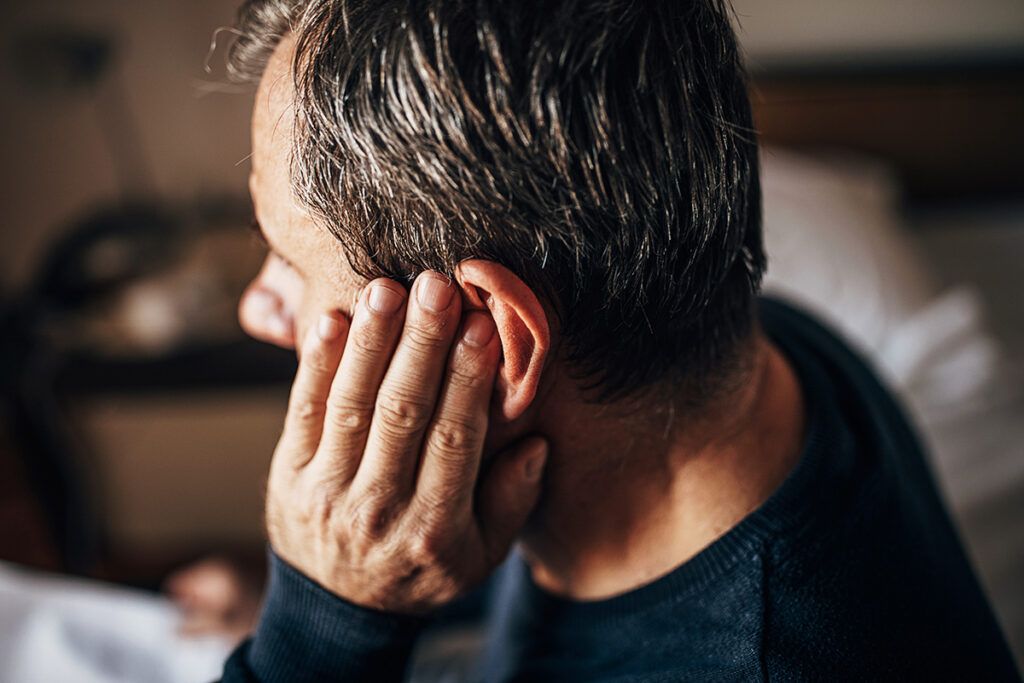Ear infections — most commonly, middle ear infections (otitis media) — are usually caused by bacteria or a virus. Doctors might take the approach of watchful waiting before prescribing antibiotics for your ear pain. This means they will wait and see whether the pain goes away on its own or needs treatment.
Most ear infections get better without antibiotics. But antibiotics may be necessary if the infection lasts longer than a few days.
Home remedies include keeping irritants away from your ear and protecting it from pressure. Heat and cold can also help reduce the pain. Contacting a doctor immediately is a good idea if you experience a high fever or severe symptoms.
At-home remedies for ear infections

You can ease symptoms with home remedies while waiting for your ear infection to improve. You can use these in combination with OTC pain medications to find relief.
Warm or cold compresses
Holding a warm or cold compress against or near your ear may help soothe discomfort. Both heat and cold are common remedies for injury and pain.
Heat increases blood flow to an area, which can help relax muscles and relieve stiffness. Cold numbs the area and reduces swelling and inflammation.
Consider a heating pad or ice pack, depending on your temperature preference. Take care not to hold either one directly against your skin. Wrapping it in a towel before placing it near your ear creates a good barrier.
Steam inhalation
Inhaling steam from a shower or humidifier is a common cold remedy that might also help with the pain of a mild ear infection.
Although there’s no medical evidence to suggest that steam helps with cold symptoms, anecdotal evidence suggests it has congestion-relieving benefits. People often report using steam to loosen mucus and help it drain.
Relieving congestion might help with ear pain, too. This is because the Eustachian tube connects the nasal cavity to the middle ear. So reducing nasal swelling might reduce middle ear pressure, as ear infections can cause inflammation and fluid in this area.
Avoiding irritants
You should try to avoid touching the inside of your ear. An ear infection can cause many symptoms like itchiness. Though scratching the inside of your ear might be tempting, it can worsen your ear pain.
Sleep position
Pressure on the outside of your ear can contribute to ear pain. Consider sleeping in a way that reduces this pressure. Keep your head elevated with extra pillows if necessary. If you typically sleep on your side, try sleeping with the opposite ear pressed against the pillow.
You might also consider using a neck pillow if you find it difficult to position your head to protect your ears.
Rest and drink fluids
Focus on resting as much as possible until your ear infection improves. Consuming extra fluids, such as water, tea, or clear soups, can help your body manage the extra work it is doing to fight off the infection.
If you need help covering the cost of medications, the free Optum Perks Discount Card could help you save up to 80% on prescription drugs. Follow the links on drug names for savings on that medication, or search for a specific drug here.
